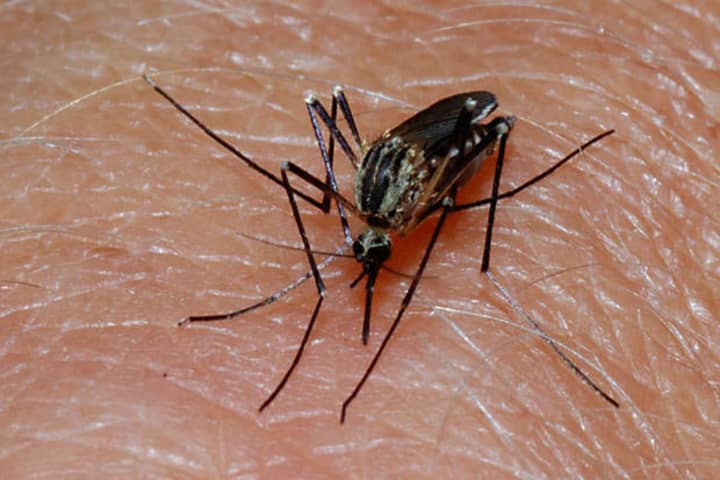No human cases of West Nile have been reported in Connecticut, according to the Connecticut Agricultural Experiment Station, which monitors mosquitoes in the state.
The State Mosquito Management Program said mosquitoes trapped in Stamford on Aug. 14 are the first positive mosquitoes identified in the city this year.
Anne Fountain, the city's director of health and social services, urged residents to be cautious.
“It is imperative that all Stamford residents take precautions to avoid contact with mosquitoes. This is particularly important for people over the age of 50," Fountain said.
"We know that mosquitoes are most active at dawn and dusk. Simple measures like long pants, long-sleeved shirts, head coverings and socks will minimize exposure to mosquitoes, which may carry the virus. The use of insect repellent is also helpful, but make sure to read instructions before applying.”
For additional protection, Stamford has completed one round of placing larvicide in over 14,000 catch basins throughout the city and will be doing another round in September, Fountain said.
Most people infected with West Nile virus who become ill will have a mild illness that may include fever, headache, body aches, nausea, vomiting, or a skin rash. Less frequently, people may develop a severe illness of the nervous system that can also include neck stiffness, disorientation, loss of consciousness, tremors, muscle weakness, and paralysis. Persons older than 50 years of age are more likely than younger persons to suffer the more severe health consequences if they become infected with West Nile.
Precautions to avoid mosquito bites include:
- Minimize time outdoors at dusk and dawn.
- Be sure door and window screens are tight fitting and in good repair.
- Wear shoes, socks, long pants, and long-sleeved shirts.
- Use mosquito netting when sleeping outdoors.
- Use mosquito repellent when outdoors. Always use according to label instructions. The most effective repellents contain DEET or Picaridin.
- When using DEET, use the lowest concentration effective for the time spent outdoors. Read directions and wash treated skin when returning indoors.
Measures to reduce mosquitoes around the home include:
- Dispose of water-holding containers, such as ceramic pots, used tires, and tire swings.
- Drill holes in the bottom of containers such as those used for recycling.
- Clean clogged roof gutters.
- Turn over objects that may trap water when not in use such as wading pools and wheelbarrows.
- Change water in birdbaths on a weekly basis.
- Clean and chlorinate swimming pools, and when not in use, use pool covers and drain when necessary.
- Use landscaping to eliminate areas where water can collect on your property.
To monitor the spread of the West Nile virus in the mosquito population, the Connecticut Agricultural Experiment Station maintains a network of 91 mosquito-trapping stations in 72 towns and cities throughout the state from June through October.
Click here to follow Daily Voice Stamford and receive free news updates.


